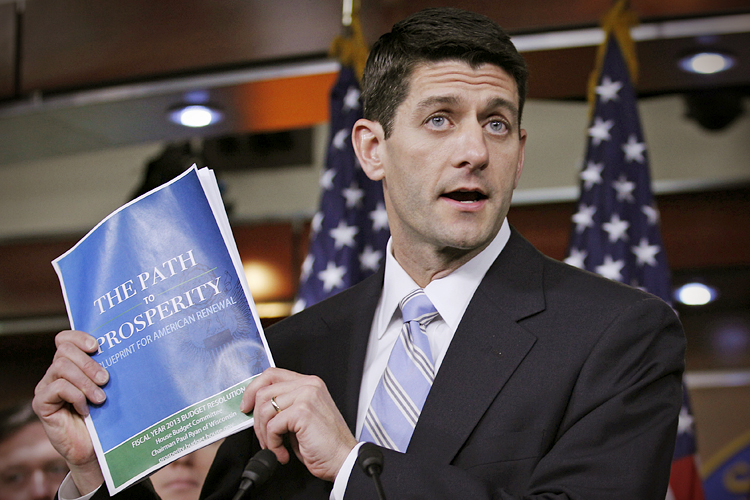The House GOP has yet to release its latest budget, but former vice-presidential candidate and current House Budget Committee chairman Paul Ryan has assured the Washington Post that, when it does, it’ll put forward a document that’s concerned first and foremost with helping the country’s economically downtrodden.
As a kind of stage-setter, Ryan has released a large document attacking the government’s current anti-poverty programs. The Post describes the release, titled “The War on Poverty: 50 Years Later,” as “an often stinging … critique of the federal government’s anti-poverty policies” that questions the usefulness of scores of anti-poverty initiatives and points out “where Republicans say consolidation or spending reductions are needed.”
“There are nearly 100 programs at the federal level that are meant to help, but they have actually created a poverty trap,” Ryan told the Post. “There is no coordination with these programs, and new ones are frequently being added without much consideration to how they affect other programs. We’ve got to fix the situation, and this report is a first step toward significant reform.
“This document is a precursor not only of our budget but of our larger project to introduce poverty reforms over the course of this year,” Ryan continued. “The president may focus on inequality because he can’t talk about growth. We’re focused on upward mobility, speaking directly to people who have fallen through the cracks.”
According to the Post, Ryan describes “the crux of the report” as a defense of “the conclusion that federal programs need to be entirely reimagined …” To take a specific example, the report criticizes many of the government’s anti-poverty measures for being “means-tested” — for providing benefits based on someone’s current earnings, rather than on a universal basis — complaining that such programs leave poor families facing “very high implicit marginal tax rates.”
More from the Washington Post:
According to the report, Head Start, a federal program for early-childhood education and nutrition, is “failing to prepare children for school,” and “a consolidated, well-funded system would be better.”
Medicaid, which provides health coverage to low-income families, is the object of a sharply worded review. “Medicaid coverage has little effect on patients’ health,” the report says, adding that it imposes an “implicit tax on beneficiaries,” “crowds out private insurance” and “increases the likelihood of receiving welfare benefits.”
The report also suggests that the “breakdown” of the family is one of the main reasons that poverty afflicts so many Americans.
“Perhaps the single most important determinant of poverty is family structure,” the report says. “Poverty is most concentrated among broken families.”

